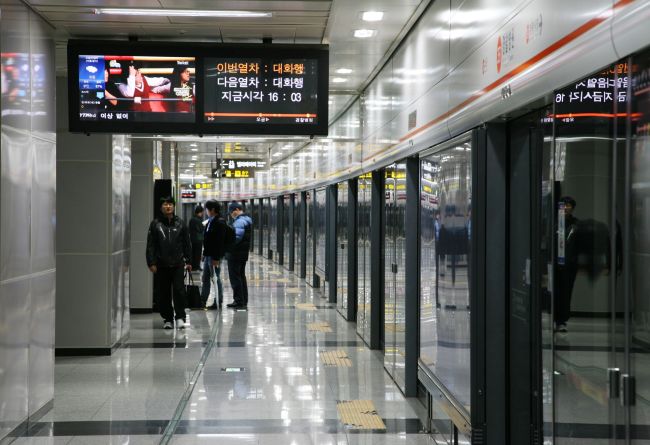Amid persistent military tension on the Korean Peninsula, a survey suggested that South Korea is ill-prepared to deliver radio broadcasts to key underground locations including subway stations and road tunnels during disasters and emergencies.
A report released Tuesday by Rep. Shin Kyumg-min of the ruling Democratic Party of Korea found there was poor radio connectivity in 88 percent of South Korea’s road tunnels and subway stations.
The survey was compiled by the state-run Korea Communications Commission and reported to Shin for a parliamentary audit beginning Thursday.
 |
Inside a Seoul subway station (123RF) |
A total of 3,026 underground sites were surveyed including 1,669 road tunnels, 621 railway tunnels and 736 subway stations. Among them, 2,650 sites, or 88 percent, showed poor radio signals when playing the state-run KBS FM radio channel, the report said.
By category, 95 percent of road tunnels, 98 percent of railway tunnels and 62 percent of subway stations nationwide had poor radio signal connectivity.
Of the subway stations surveyed, 499 were located in the Seoul metropolitan area, 107 in Busan, 89 in Daegu, 19 in Gwangju and 22 in Daejeon. Among them, 88.5 percent of Busan’s subway stations and 63.5 percent of Seoul’s subway stations had poor radio signals.
Radio is considered the most efficient method of delivering crucial broadcasts and announcements during disasters and other emergency situations. The South Korean government has reportedly been planning to launch next year smartphones that can directly receive radio signals.
However, such measures will be rendered useless without vast improvements to Korea’s radio connectivity environment, Shin said, urging action from the Transportation Ministry, the KCC and local governments.
According to the telecommunications law, the installation of wireless network equipment including that for radio inside transport infrastructure is left up to the operator.
By Sohn Ji-young (
jys@heraldcorp.com)








